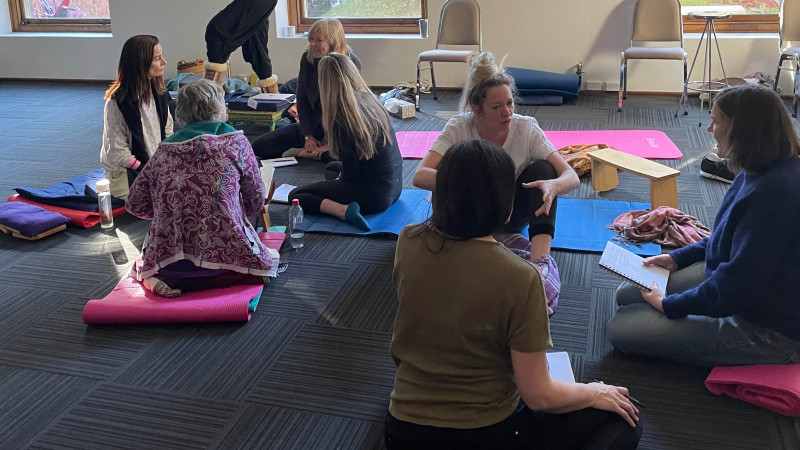Pre-requisites for the MTI Training Program
There are many paths to practice and into teaching mindfulness these days. In the MTI program (and in line with international standards) we believe that teaching needs to come from the firm basis of our own experience of knowing the practice "from the inside-out", over time. We therefore ask that complete the following pre-requisites before applying for the Level I program:
Participate in an eight week MBSR or MBCT course
Personally experiencing the way mindfulness is taught in MBSR or MBCT is an important part in your preparation to become a teacher yourself. You will probably be able to find an MBSR or MBCT course in your local area by doing an internet search. Please make sure the teacher of the course has done sufficient training in MBSR or MBCT themselves and is experienced in teaching. Please check with us if you're not sure if a course you found would be suitable. NB: The online MBSR courses through Sounds True and Palouse Mindfulness do not meet the pre-requisites because there is no live direct contact with a teacher and group.
Have a regular mindfulness meditation practice
Engaging regularly in a personal mindfulness meditation practice (i.e. a sustained practice of at least 12 months) is a central part of preparing for level I training.
Attend a 5 - 7 day silent mindfulness meditation retreat
(This is best fulfilled pre application so that you can integrate your experience into the Module 1 Essay, due anytime before 1st March 2024)
Attending silent retreats are a central part of offering mindfulness to others and an ongoing source of professional and personal nourishment and inquiry for mindfulness teachers. Initially we ask that you undertake at least one silent, teacher-led mindfulness meditation retreat of at least 5 days as a pre-requisite for the Intensive. This immersion in the practice makes it possible to engage skillfully with the kinds of dilemmas and questions that arise in people's practice. It also develops our own personal qualities of acceptance, patience, trust, non-striving, letting be and stability of mind. Most mindfulness approaches are drawn from the tradition of Insight (Vipassana ) meditation, and insight meditation retreats are widely available in Australia. Even though you may have attended retreats in other contemplative traditions (e.g. yoga, Tibetan) we ask you to attend a silent mindfulness meditation retreat as part of this training process. Do be in touch if you want help in finding a suitable retreat.
Click here to go to a listing of various organisations including MTI that offer silent retreats.
Cultivate a body-based practice
Awareness of the body is central in teaching mindfulness meditation. In-depth experience in a body-based awareness and movement practice can assist bringing awareness into everyday life and bring confidence into the teaching of body-focussed practices. Some ongoing experience as a student in Hatha yoga classes will give you confidence in leading practice. (As well as this yoga experience, practice in other awareness-based training can also be helpful of course. eg. T'ai Chi, Feldenkrais, Chi Gung.)
Professional background and relational skills
Having a professional background which involves working with people (in a clinical, educational or communications area) provides important ground for the teaching work. Teaching mindfulness involves personal and interpersonal qualities such as genuineness, compassion, warmth, empathy and potency.
Pre-Reading
Please refer to the required pre-reading for the program. The pre-readings are useful for your study module essay which you will access after you apply for Level I. Please give yourself time to read thoroughly. Most people take six months or more to complete this.
Applications will only be accepted from those who have completed all the above pre-requisites.



